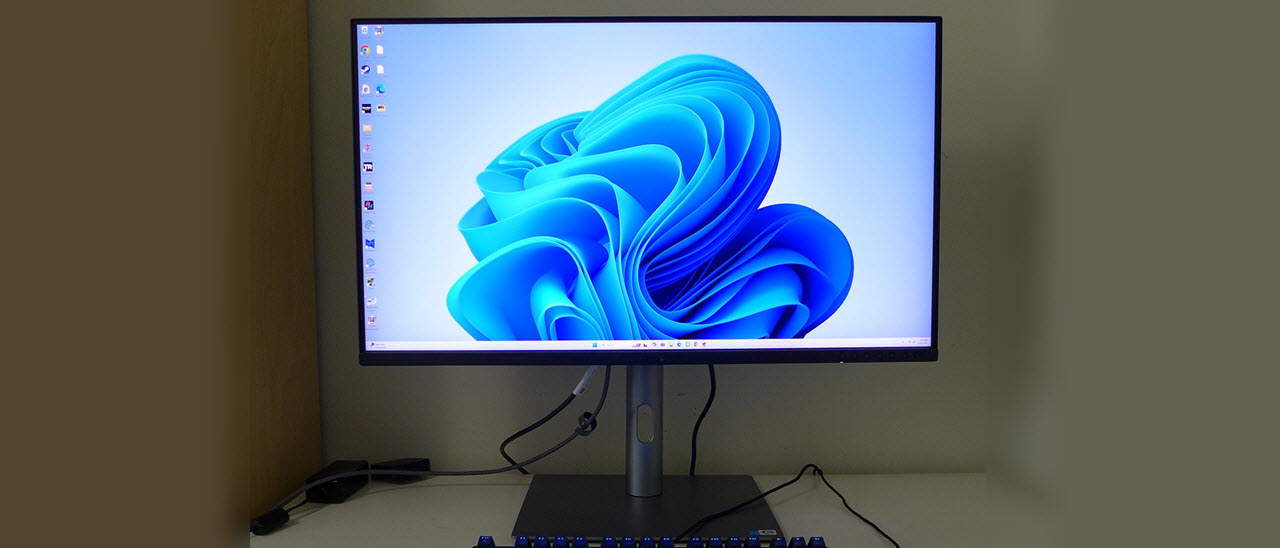Why you can trust Tom's Hardware
To read about our monitor tests in-depth, please check out Display Testing Explained: How We Test PC Monitors. We cover brightness and contrast testing on page two.
Maximum Backlight Level
- Maximum White Luminance Native Mode – 648.9998 nits
- Maximum Black Luminance Native Mode – 0.4111 nit
- Maximum Contrast Ratio Native Mode – 1,578.7:1
The PA32QCV is very bright whether dynamic dimming is engaged or not. I measured the same peaks from full field and 25% window patterns. Dimming only affects the black level, and if you use it, the contrast ratio rises to around 3,000:1. The brightness slider is very precise with 400 clicks of resolution. You can turn it down all the way to 10 nits if you like. I noted that the peak changed depending on picture mode. The above result was from Native.
After Calibration to 200 nits
Since my PA32QCV sample showed slight green errors in the grayscale tests, I calibrated the Native mode using the RGB sliders with the peak value set to 200 nits.
- Calibrated Contrast Ratio (200 nits) – 1,602.6:1
- 16-point ANSI Contrast Ratio – 1,553.7:1
The PA32QCV demonstrated consistent performance in all modes. Though the peak values changed, the contrast ratio was always around 1,600:1. This is as it should be for a professional display. ANSI contrast also remained solid. The PA32QCV has greater native dynamic range than typical IPS monitors with excellent black levels thanks to the dynamic dimming option.
Test Takeaway: The PA32QCV delivers more depth and contrast than typical IPS LCD monitors. You can get better performance from an OLED or Mini LED, but at a higher price. 1,600:1 is enough range to render solid blacks and saturated color. And there is more than enough light output to use it outdoors in a production setting.
MORE: Best Gaming Monitors
MORE: How We Test PC Monitors
Get Tom's Hardware's best news and in-depth reviews, straight to your inbox.
MORE: How to Buy a PC Monitor
Current page: Brightness and Contrast
Prev Page Response, Input Lag, Viewing Angles and Uniformity Next Page Grayscale, Gamma and Color
Christian Eberle is a Contributing Editor for Tom's Hardware US. He's a veteran reviewer of A/V equipment, specializing in monitors. Christian began his obsession with tech when he built his first PC in 1991, a 286 running DOS 3.0 at a blazing 12MHz. In 2006, he undertook training from the Imaging Science Foundation in video calibration and testing and thus started a passion for precise imaging that persists to this day. He is also a professional musician with a degree from the New England Conservatory as a classical bassoonist which he used to good effect as a performer with the West Point Army Band from 1987 to 2013. He enjoys watching movies and listening to high-end audio in his custom-built home theater and can be seen riding trails near his home on a race-ready ICE VTX recumbent trike. Christian enjoys the endless summer in Florida where he lives with his wife and Chihuahua and plays with orchestras around the state.
-
wakuwaku ReplyRemember that the PA32QCV has Adaptive-Sync? It’s in the Settings menu under the heading MediaSync. Confusing, yes. Not only is it apart from other video processing options, but it’s also called a term only used by Asus. But now that you’ve read this, you know, and can tell your friends.
Firstly NO. Don't tell your friends what Tom's AI tells you. They will laugh at you, then the AI will laugh at you too when you complain about it.
The reason why Asus calls it MediaSync because that is the name of the standard that they are using. The MediaSync standard was introduced by VESA back in 2022!!!
https://vesa.org/featured-articles/vesa-launches-industrys-first-open-standard-and-logo-program-for-pc-monitor-and-laptop-display-variable-refresh-rate-performance-for-gaming-and-media-playback/
The reason why Asus does not call it AdaptiveSync is because it doesn't meet the requirements of the Adaptive Sync standard. It's not necessary to meet those standards for a creator monitor anyway. Here's a simple explainer:
https://www.displayninja.com/what-is-vesa-adaptivesync-mediasync/
Lastly, no Asus is not the only brand to use the term, since VESA introduced the term. And there are other brand that also use the same term: (Scroll down, MediaSync list of monitors is at the bottom)
https://www.adaptivesync.org/certified-products/
Seriously, the standard is not that new, although there are relatively low amount of monitors that are certified, but that is because only just recently that creator/professional monitors are getting variable and higher refresh rates. As a monitor reviewer, you could at least, you know? Keep up with what VESA does every now and then since they determine standards that hopefully make our monitoring experience better.
